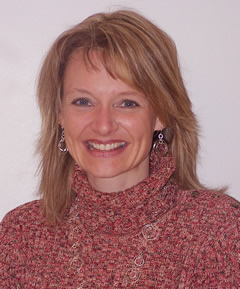
Tusculum College School of Business Professor Dr. Michelle Freeman was recognized this week for her recent publication of two articles in national publications. Freeman is an assistant professor of business administration at the College.
The first article, “PollEverywhere.com: Turning Cell Phones into a Tool for Student Engagement,” was published in the December 2008 edition of The Teaching Professor. The article was co-authored by Kent Schneider of East Tennessee State University.
The article offers that cell phones often are a source of distraction in the classroom, particularly with the proliferation of text messaging, but suggests that rather than fighting the texting, instructors can engage students by encouraging them to text about the class subject matter.
Freeman ran a pilot program in her classroom and reported the results as part of the published article. In the experiment, Freeman utilized a Web site called polleverywhere.com that allows students to text in answers to questions, and then the Web site tabulates those answers and presents the findings back in chart form.
In the article, Freeman states, “Our classes enjoy watching their multiple-choice answers appear in the form of a bar graph that constantly changes as the number of responses increases. The free text
form is also a wonderful option. It allows teachers to solicit both questions and answers from students. It offers a safe way for reluctant students to speak in class.”
“It’s a little like the audience polling on ‘Who Wants to be a Millionaire,’” Freeman said. “The students really enjoyed working with the program and it gave us as instructors a moment to speak their language.”
Freeman said that while there will certainly always be times in the classroom where cell phone use will be inappropriate, there are many ways to incorporate them into learning activities that enhance the curricula.
The Teaching Professor is a targeted professional publication that focuses on educational teaching methods.
The second article, “Analyzing the TJ Maxx Data Security Fiasco: Lessons for Auditors,” was published in the August 2008 edition of The CPA Journal. Co-authored with Schneider and Gary Berg, also of ETSU, the article addresses the January 2007 breach of the TJ Maxx retail chain’s computer system that resulted in massive theft of customer information, including 94 million Visa and MasterCard accounts.
Freeman said the article’s target audience is that of controllers of corporations and auditors who advise corporate clients. The article addresses what went wrong with TJ Maxx’s security and applies the lessons learned to help auditors provide the companies they serve with improvement steps that will reduce the chances of the same scenario occurring at their companies, whether large or small.
Freeman said, “If they haven’t addressed the issue of data theft, these companies could be open to liability. They need to be prepared for any possible contingency.”
The article recommends three primary precautions:
- First, check to see if there is wireless access to the company network. Even if company policy prohibits wireless routers, a renegade router installed by an employee may be connected.
- Second, evaluate the company’s data storage practices and security for stored customer data. Ascertain that the company complies with PCI security standards and is not retaining excess data scanned from customer credit and debit cards.
- Finally, review the company’s data-retention policies and practices. Make sure the merchant does not retain customer data any longer than permitted by the card issuers. Even better, do not retain data any longer than necessary to document the underlying transaction.
The CPA Journal is a national professional journal for accounting professionals.
Tusculum College, the oldest college in Tennessee and the 28th oldest in the nation, is a civic arts institution committed to developing educated citizens distinguished by academic excellence, public service and qualities of Judeo-Christian character. About twenty-four hundred students are enrolled on the main campus in Greeneville and four off-site locations in East Tennessee. The academic programs for both traditional-aged students and working adults served through the Graduate and Professional Studies program are delivered using focused calendars whereby students enroll in one course at a time.


